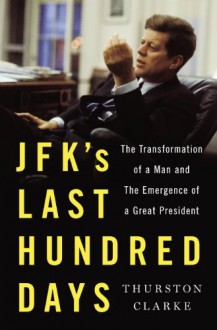
Last month, I went to see the author speak about this book at one of the few remaining reputable bookstores in my adopted city. He gave a very compelling presentation, bringing out some things about President Kennedy and his administration that I had not known about. In fact, I was so impressed by the author that I bought the book shortly thereafter.
The book starts off by looking back at December 31, 1962. President Kennedy was vacationing in Florida, where Elaine de Kooning (estranged wife of the famous abstract painter Willem de Kooning) was painting the President's portrait. She had been commissioned by the Harry S. Truman Presidential Library to paint his portrait because of her exceptional talent and ability to finish a portrait in a single sitting. This had earned her the name "the Fastest Brush in the East." She drew the President in a variety of poses and mediums that day, trying to capture what she considered as his essence. But after returning to her home in New York and completing the portrait, de Kooning felt that she hadn't quite captured that essence. She would spend most of the following year "painting only him, papering the walls of her studio with his likenesses and falling, she admitted, 'a teeny little bit in love with him.' "
But, in the main, as the title suggests, the book's focus is on the last 3 months of the Kennedy Administration. As I delved into the early chapters, I had no idea of the impact that the death (on August 9, 1963) of JFK's second son, Patrick, had on both him and his wife. Not generally known as an openly emotive or affectionate person, he wept openly in the hospital where Patrick was undergoing treatment to help him to breathe unaided, scarcely leaving his side. I had known that Jackie Kennedy had been deeply saddened by their son's death. But as for JFK, I hadn't given much thought to his personal life during those last hundred days. The achievements of the Kennedy Administration from the resolution of the Cuban Missile Crisis to JFK's commencement address at American University (June 10, 1963 - when he spoke about establishing better relations with the USSR, "making the world safe for diversity", and forging a just and meaningful peace that would benefit everyone), his address to the nation on civil rights the following day (defining it as "the moral issue of our time", which led to him presenting Congress with a Civil Rights Bill), his signing of the Equal Pay Act (the first President to support the concept of equal pay for men and women in the same occupations), his trips to Ireland and Berlin, and the signing of the Nuclear Test Ban Treaty were what captured my attention.
Each chapter is set in such a way as to make the reader feel that he/she was witnessing (inasmuch as it was possible, given the author's copious research, a significant part of which was derived from oral histories from people who had worked closely with JFK and some of the tapes that President Kennedy had made of some of his White House staff and official one-on-one meetings) the inner workings of a government from its nerve center.
The chapters in which Kennedy's Vietnam policy and his positions on it were given careful scrutiny convinced me that, had he lived, there would have been no Vietnam War and all the military advisors he had sent there would have likely been brought home by 1965. This is not to suggest that JFK was a pacifist. Far from it. While in the Navy during the Second World War, Kennedy had pulled strings to get out of a stateside desk job in Naval Intelligence to combat service in the South Pacific as a commander of a PT boat, one of the most dangerous jobs available. Thus, he knew the true costs of war. Furthermore, JFK's experience from the Bay of Pigs debacle made him distrustful of the Joint Chiefs of Staff, who, had he acceded to their recommendations, would have pressured him to invade Cuba (under false pretences) and keep up the massive infusions of defense spending.
The following citation attests to Kennedy's willingness to stick fast to a policy decision, despite opposition from some of his closest aides and advisors ---
“After Mansfield [the Senate Majority Leader] left, [JFK] turned to O’Donnell and said, ‘In 1965, I’ll become one of the most unpopular Presidents in history. I’ll be damned everywhere as a Communist appeaser. But I don't care. If I tried to pull out completely now from Vietnam, we would have another Joe McCarthy red scare on our hands, but I can do it after I’m reelected. So we better make damn sure I am reelected.’ “
Another part of the book that intrigued me was the distinct possibility of JFK dropping LBJ as Vice President in 1964. Johnson, who felt much diminished after leaving the Senate (where he had been one of the most effective and powerful Majority Leaders in that body's history) to serve as Vice President, wasn't happy in the role. JFK tried to be accommodating to him. But LBJ, being more of the wildly impulsive type who lived and breathed politics almost without letup, was more likely than not to put his foot in his mouth. His visit to Scandinavia in the late summer of 1963 didn't go well at all. LBJ made some impolitic remarks and his suffering from gallstones only exacerbated matters for him.
Mr. Clarke has written a very readable, highly informative and engaging book. There were some matters about the slowly blossoming Bobby Baker scandal (Bobby Baker was known as a mover and shaker, a shady dealer on Capitol Hill and a bosum pal of LBJ from his Senate days) that were very eye-opening. I invite any interested reader of this review to pick up this book and find out what that aborning scandal was all about.
I LOVED this book. But felt very sad as I neared the last chapter, knowing how everything was going to turn out in Dallas. (I wish JFK had heeded the advice from some of his aides and Democratic Party operatives in Texas NOT to visit Dallas, where his UN Ambassador Adlai Stevenson had been roughly treated when he had visited the city earlier in 1963.) Nevertheless, I'm so glad I read this book because I learned so much. I feel more than ever that, in President Kennedy, we had a truly unique and remarkable leader who grew significantly during his time in office and showed considerable promise of being a prime catalyst in ushering in a New Renaissance from which a better world (largely free of poverty, racism, and war --- celebrating the arts and sciences) might have emerged.
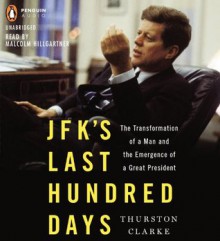

 Log in with Facebook
Log in with Facebook 






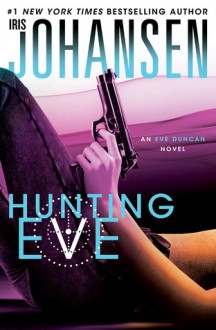

 Hardcover - July 16, 2013
Hardcover - July 16, 2013 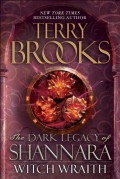
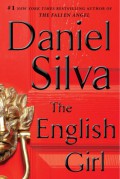

 Hardcover - July 16, 2013 #1 New York Times bestselling author Iris Johansen brings us book two in a heart-stopping new Eve Duncan trilogy.The stakes are raised even higher in Hunting Eve as Eve battles the man who is holding her prisoner. Secrets about why Eve has been targeted come into the light, bringing Eve even closer to danger. With its cliffhanger ending,Hunting Eve sets up perfectly for the finale, Silencing Eve.
Hardcover - July 16, 2013 #1 New York Times bestselling author Iris Johansen brings us book two in a heart-stopping new Eve Duncan trilogy.The stakes are raised even higher in Hunting Eve as Eve battles the man who is holding her prisoner. Secrets about why Eve has been targeted come into the light, bringing Eve even closer to danger. With its cliffhanger ending,Hunting Eve sets up perfectly for the finale, Silencing Eve.




